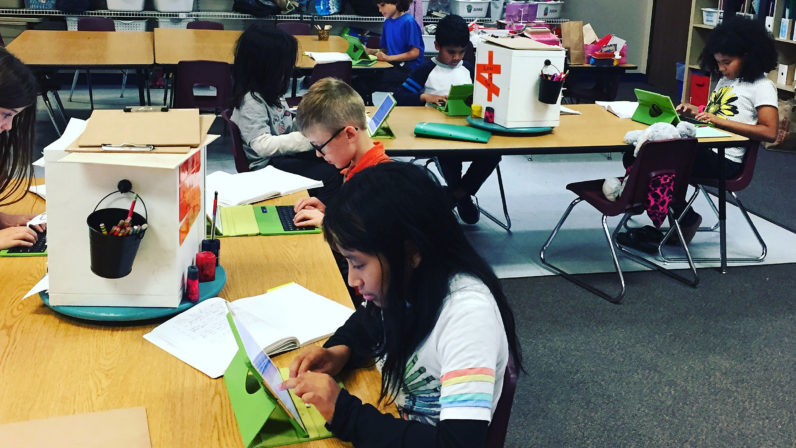Like some of my colleagues and friends, I had the good fortune of seeing Hamilton last week. It was like nothing I’ve ever experienced. Everything about it was exceptional, and as I continue listening to its soundtrack, more is revealed. Several major themes keep circling around in my mind, including standing up for what you believe, not giving up, staying scrappy, and the ephemeral nature of life. One of the most important threads is the fact that Alexander Hamilton was a highly skilled writer. Throughout the production, the impact of his writing on our young nation was emphasized. It’s made me reflect on my own practice as a writer and teacher of young writers.
Last week was one of those times when the weight of the world’s problems seemed particularly heavy. Whenever I begin to slide into overwhelm, I bring myself out of it by remembering what’s right before me, taking stock of what I can do to act locally. When I go down the list, working with young writers is one of the top items. I wrote recently (https://www.awakeningseedschool.org/2018/01/talking-makes-difference/) about how we help children find and use their voices. Their voices gain power when they can also put their thoughts in writing. An example of this, not surprisingly, showed up this week.
The 3rd/4th graders subscribe to a small publication called the Arizona Studies Weekly, which contains age-appropriate Arizona news. Once article was about how a bill becomes a law. When it came to the step where the bill is passed to the governor, the governor was referred to as “he.” Some students were concerned about this and wrote letters. Here are excerpts from their letters:
“I noticed that in the article, ‘How Does A Bill Become A Law?’ when it is talking about the governor it just keeps saying ‘he.’ It should say ‘he or she.’ It’s a form of discrimination to only say ‘he.’ It can make girls feel like they can’t be the governor. Thank you for listening.”
“I feel that in ‘How Does a Bill Become a Law?’ the article should say ‘he/she’ instead of just ‘he’ when talking about the governor. It really annoyed me as a girl. Please consider making a change.”
“When I see that just ‘him’ or ‘he’ I think women can’t be senators, governor, etc. I am just letting you know that so you might change it to ‘he’ or ‘she.’ ”
The work of developing young voices involves training and practice. Additionally, it requires cultivating awareness of issues that need to be changed. This takes time and attention with skilled teachers for several years. One of the lines from Hamilton that has stayed with me is “How lucky we are to be alive right now.” During these often challenging times, it’s easy to question how lucky we are. Each phase of history has had its own challenges and blessings. If I could pick a challenge/blessing for right now, I’d say it’s that humans all over the world, especially young people, are speaking up and not backing down. I feel lucky to have even a small part in supporting this process through our work here at the Seed.

